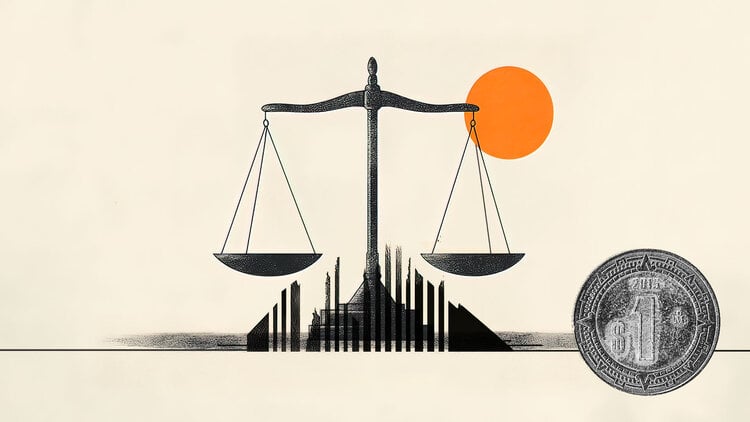The price of oil at around US$ 100, which has not been seen since 2014, brings opportunities to a country that, like Brazil, has become a major producer and exporter of the commodity over the last decade. According to the corporate executive director of the Brazilian Petroleum Institute (IBP), Fernanda Delgado, oil producers should benefit as a whole from the imbalance in the market, with Russia losing ground as a supplier due to sanctions for the war with Ukraine.
“This opens up the possibility of importing from another supplier”, he says. “It can reactivate Venezuela, reactivate Iran, and it also opens up the possibility for Brazil, an already consolidated market, it is not dormant like the other two, it can be a supplier of oil considering this initial moment”, says Delgado.
In this scenario, Brazil can benefit from an increase in demand and gain of share in the international market, encouraging production in the country and increasing corporate profits.
The professor at Unesp and analyst at Inversa, Flávio Conde, divides the effects of the war on the oil and gas sector in Brazil in two moments: before and after the announcement by Petrobras of a readjustment in fuel prices, on Thursday (10 ).
Before the adjustment, the most benefited segment was the crude oil producers who sell directly at the international market price. This is the case of PetroRio and 3R Petroleum, which benefited less from having fewer extraction wells.
In their case, profit is directly linked to the price of oil. If it goes up, as it happened from January to now, the billing also advances.
The situation is different for Petrobras. According to Conde, the company only earns when it readjusts the price of fuel at refineries, avoiding losses when it buys oil at a higher price abroad than that practiced in the domestic market.
“Before the readjustment, I calculated a loss of R$ 12 billion in the first quarter with this difference. It was an additional expense not to pass on prices”, he says.
On average, Petrobras’ readjustments have taken between 50 and 60 days, a time that the analyst considers reasonable in normal market conditions, but not in the current, sharp rise in the commodity.
With the reduction of the lag in relation to the exterior, going from around 25% to 4%, it is now that the state-owned company should start to see gains.
Already in the estimates of Décio Oddone, former president of the ANP and current president of the oil company Enauta, the losses for the country with more expensive oil are about three times greater than the gains. For him, however, the current scenario is already an advance in relation to the not too distant past, when the country was still completely dependent on imports.
“For every increase of US$ 1 in the value of a barrel of oil, Brazil has an increase of around R$ 1 billion in revenue, but the impact of increases in the main derivatives is around R$ 3 billion more in costs for society,” he said.
This happens, he explains, because, although it has reached self-sufficiency in crude oil and has become an exporter, Brazil still depends on the import of derivatives such as fuels, to complement national consumption.
“It is still a deficit account, but there are resources that help offset part of the increases. Before, Brazil only lost. In the 1980s, when we were still major importers, an oil crisis was a double crisis: in addition to price increases, we still had a foreign debt crisis,” adds Oddone.
David Zylbersztajn, former director of the ANP, reinforces that the negative effects of such high oil can be greater than the benefits of the gains.
“On balance, it’s been bad for the whole world and it won’t be any different for Brazil,” said Zylbersztajn, who is also a professor at PUC-Rio. “For Petrobras, a high barrel is a good deal, but it is negative for those who need to buy. Oil is an input for many things, from road transport and aviation to gas cylinders. There will be no way, everything will be more expensive.”
The researcher at the Center for Studies and Regulation in Infrastructure at Fundação Getulio Vargas (FGV/Ceri), economist Diogo Lisbona, observes that “with more sales, there is greater collection of royalties, special participations and taxes for governments”.
“Petrobras can also renew its record profit, which increases the payment of dividends,” he adds, noting that the Union remains the oil company’s main shareholder and fatter dividends mean an injection of billions of reais directly into the National Treasury’s coffers.
Economic recovery in the pandemic
In Brazil, as in other producers, the effects of the oil spike were already noticed in 2021, with demand heated up by the resumption of activities after a period of restrictions imposed by the covid-19 pandemic. Here, the country last year broke a record in revenue from oil exports. There were US$ 30.6 billion in foreign sales of the product, even though production was 3.5% lower than in the previous year, according to data from the National Agency of Petroleum, Natural Gas and Biofuels (ANP).
The value, unprecedented, represented an increase of 56% over 2020 and 27% over 2019, before the recessive effects of the first year of the pandemic.
Petrobras also recorded the highest profit in its history in 2021 – R$106 billion, 1,400% more than in 2020. The amount helped to guarantee its shareholders a record of R$101.4 billion in dividends, of which R$37 .3 billion just for the Union’s cash.
Learn more about oil and how its quotation works
Source: CNN Brasil
I am Sophia william, author of World Stock Market. I have a degree in journalism from the University of Missouri and I have worked as a reporter for several news websites. I have a passion for writing and informing people about the latest news and events happening in the world. I strive to be accurate and unbiased in my reporting, and I hope to provide readers with valuable information that they can use to make informed decisions.







